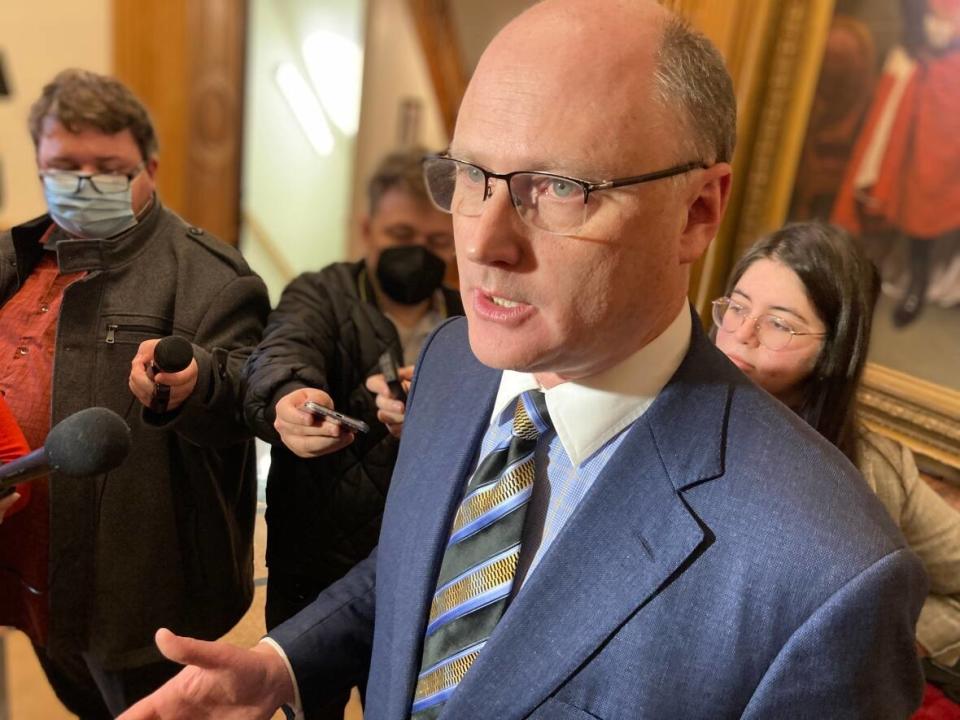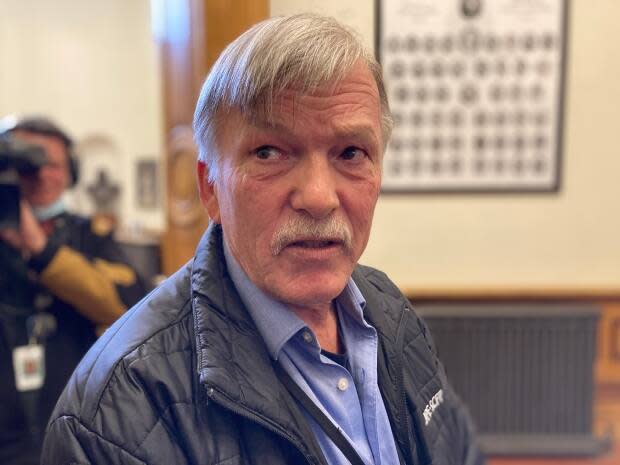N.B. introduces stricter strike rules for public-sector workers

The Higgs government is legislating stricter rules on how public-sector strikes and lockouts can happen.
Under a bill introduced Thursday, unions would be forced to give 72 hours' notice before going on strike.
The government will also give itself the power to replace designated essential workers who don't show up during a labour dispute, including with non-unionized replacement workers if necessary.
And it will have more leeway to change the work schedules of essential workers, something they are restricted from doing now under the Public Service Labour Relations Act.
One public-sector union leader immediately labelled the bill as an attack on workers.
"This is nothing more than stripping away the rights of these workers to have free collective bargaining," said Stephen Drost, president of the Canadian Union of Public Employees in New Brunswick.
"This act … is certainly not going to improve labour relations in this province."

Labour Minister Trevor Holder said the bill was simply an effort to bring "clarity" to rules surrounding essential workers, which he said the Labour and Employment Board has described as ambiguous.
"We need to be very clear on what this is and what this isn't," he said. "This is about designated essential services that are in place for the protection and safety of New Brunswickers in the event there's a work stoppage.
"All we're saying is that we need to makes sure there's an ability to meet those essential services based on what's agreed to, either by both sides or by what the Labour and Employment Board sets out."
Drost said there was no evidence during last year's strike by CUPE unions that essential workers were refusing to show up for work.
"If there is a designated worker that can't show up, all they need to do is talk to the union and we'll fill that position. That has always been our way of doing business. … We would never, ever put the public at risk."
Holder would not say whether any essential workers refused to show up for shifts last year.
"We need to dial down the rhetoric a little bit, work together as New Brunswickers and at the end of the day see this for what it is," he said.

New Brunswick Union president Susie Proulx-Daigle also condemned the bill in a statement.
"It is designed to tilt the playing field in the employer's favour," she said.
"The premier has stated many times he wants to do politics differently. Different appears to mean not respecting workers' rights."
Unions would gain the right to picket at their workplaces, something that is not allowed under the existing law.
But that change is being made because government officials believe the current ban will eventually be ruled unconstitutional in the courts and it's simpler to bow to the inevitable.
The other amendments favour the Progressive Conservative government, which has the majority it needs in the legislature to get the bill passed.
A membership vote for a strike mandate, which can now stay in place for years, would now expire after one year, forcing unions to vote again.
Unions would have to give 72 hours' notice before walking off the job, while the province will only need to provide 24 hours' notice before locking out workers in a strike position.
If both sides agreed to binding arbitration in a dispute, the arbitrator would be allowed to consider new criteria, including the province's financial situation — something the Higgs government already added to binding arbitration rules for firefighter and police unions.
The two sides would also have longer to negotiate which workers should be designated essential in a strike or lockout.
The Public Service Labour Relations Act governs employer-union relations in the four parts of the public service.
The opposition parties in the legislature criticized the bill.
"They're sending a message that they're getting ready for another round of confrontations," said Liberal labour critic Keith Chiasson.
Green Party Leader David Coon said the legislation was "an attack on the working people in our public service. They're imposing constraints that are unreasonable."
Three CUPE locals have expired contracts and a fourth will have its collective agreement expire next month. Two more expire next year and three others will run until 2024.

